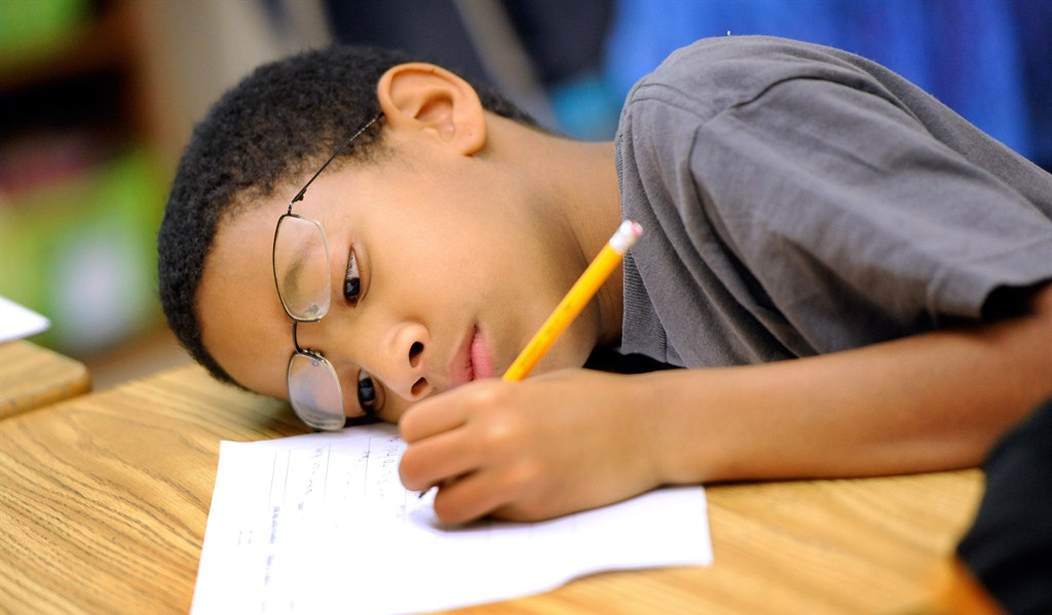Earlier this week, Washington Post writer Valerie Strauss kicked the homework beehive with a column that included homework among a list of items that supposedly don’t help students learn. Last fall, a Today show story revealed that some schools have decided students are spending too much time on their studies and have banned homework. Apparently, schools from Rockville, Maryland to Aliso Viejo, California have either stopped assigning homework entirely or adopted policies that restrict the amount of work schools assign students.
University of Arizona South professor Etta Kralovec, who wrote a book on the topic, asks, “Kids are at school 7 or 8 hours a day, that’s a full working day and why should they have to take work home?”
Perhaps it’s not the homework load that we should be worried about, but what is happening in those seven to eight hours kids spend at school. After decades of funding increases and trendy reforms like smaller class sizes and new academic standards, 17-year-olds’ average test scores haven’t changed in math or reading for more than 30 years.
American students still woefully lag their peers in other countries – including Poland, Estonia, Ireland, and Singapore, whose students all report spending more time on homework than do American students. The latest international comparison finds that students in 18 countries had higher average scores than American students in math, science, and reading.
Moreover, research shows American students are not, in fact, overworked. The Brookings Institution’s review of homework assignments finds claims that students are overburdened with homework are “unfounded.” Brookings Senior Fellow Tom Loveless does not discount parents’ stories—such as those cited by the Today show and elsewhere—about the stress that homework causes at home. But data suggest these anecdotes are “atypical.”
“The question is whether strong empirical evidence confirms the anecdotes about overworked kids and outraged parents,” says Loveless.
Recommended
Considering the test results cited above for 17-year-olds, it should come as no surprise that nearly 40 percent of those in a U.S. Department of Education survey said they had no homework at all or did not do it. Students were asked how much time they spent on homework the previous day, which, when tracked over multiple years, is an indicator of how much schoolwork students are bringing home.
For those who think senior year should just be a rest stop before college, think again. In Kralovec’s home state of Arizona, research from the state board of regents found that in half of the state’s high schools, just 5 percent of graduates went on to earn a bachelor’s degree in six years. Overall, only 19 percent of Arizona high school graduates that entered a four-year college finished during that time period.
What research exists on homework and student achievement suggests the extra work, at a minimum, does students no harm. In their international research, the Organisation for Economic Co-operation and Development (OECD) found, “Schools whose students spend more hours on homework or other study set by teachers tend, on average, to perform better, even after accounting for the socio-economic status and demographic background of students and schools and various other school characteristics.”
The OECD also explains that when comparing national education systems, the number of homework assignments from one nation to the next does not explain the differences in student achievement. This means that homework, by itself, is not the answer to America’s education woes. Too many students are assigned to failing schools, especially in urban areas, and too few families have choices about where or how to educate their children. More take-home worksheets aren’t going to fix that.
However, evidence indicates our students are not overworked right now. Parents and schools in the U.S. should be looking for ways to help students succeed, even if it means more work.
Parents and educators should be less concerned with homework levels and more concerned with using homework and other assignments to inspire students for the future.

























Join the conversation as a VIP Member